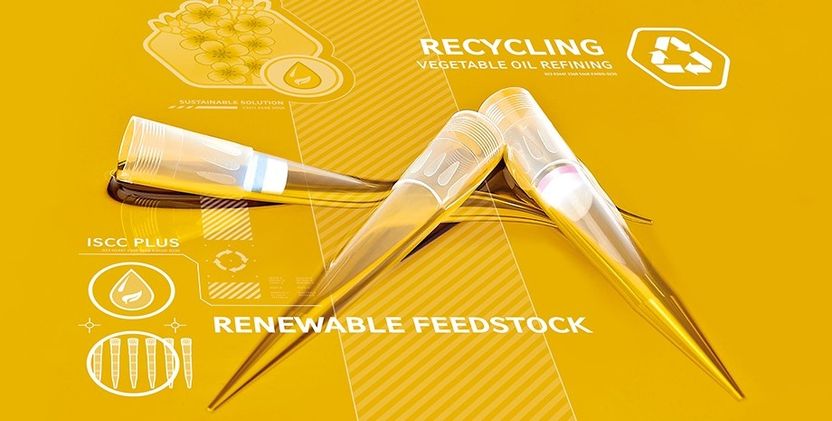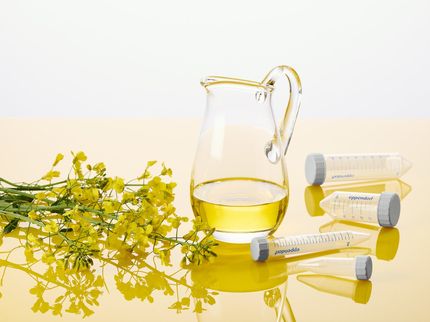Pipette tips made from cooking oil
Eppendorf uses new, more environmentally friendly materials
Ever since vessels made of glass were replaced by fossil-based plastic vessels, these have been irreplaceable in laboratories world-wide. This is because they provide the required quality standards for increasingly demanding research. This is a growing challenge in terms of sustainability. As a result, Eppendorf not only focuses on developing new products, but also on new, more environmentally friendly materials.

Eppendorf SE
Following the successful launch of a new generation of bio-based Eppendorf Tubes® , Eppendorf is taking the next step and introducing the epT.I.P.S.® BioBased pipette tips to the market, which are also manufactured from at least 90% renewable, bio-based materials (recycled from cooking oil waste and residue, for example).
In addition, the Reload variant developed especially for these pre-sterilized pipette tips saves up to 54% plastic in comparison to disposable racks, considerably reducing waste.
Most read news
Organizations
Other news from the department business & finance

Get the analytics and lab tech industry in your inbox
By submitting this form you agree that LUMITOS AG will send you the newsletter(s) selected above by email. Your data will not be passed on to third parties. Your data will be stored and processed in accordance with our data protection regulations. LUMITOS may contact you by email for the purpose of advertising or market and opinion surveys. You can revoke your consent at any time without giving reasons to LUMITOS AG, Ernst-Augustin-Str. 2, 12489 Berlin, Germany or by e-mail at revoke@lumitos.com with effect for the future. In addition, each email contains a link to unsubscribe from the corresponding newsletter.
Most read news
More news from our other portals
See the theme worlds for related content
Topic world Pipetting
Pipetting is one of the most basic yet critical techniques in the laboratory. It enables the precise and controlled transfer of liquids, which is essential for accurate measurements and reliable results. Whether in DNA analysis, cell culture or biochemical assays, correct pipetting significantly influences the quality of the results.

Topic world Pipetting
Pipetting is one of the most basic yet critical techniques in the laboratory. It enables the precise and controlled transfer of liquids, which is essential for accurate measurements and reliable results. Whether in DNA analysis, cell culture or biochemical assays, correct pipetting significantly influences the quality of the results.






















































